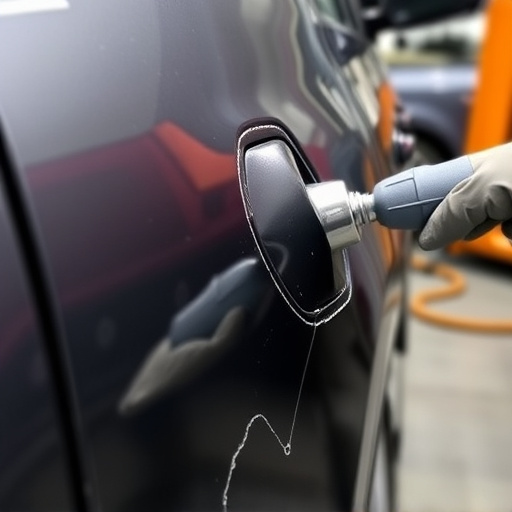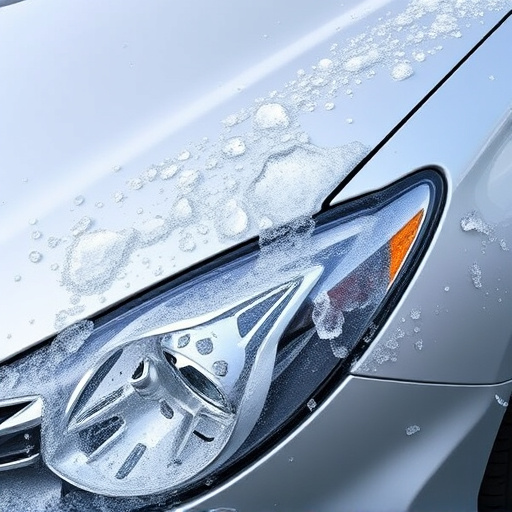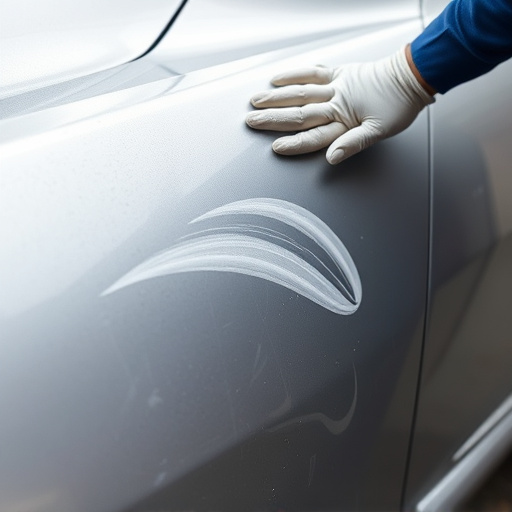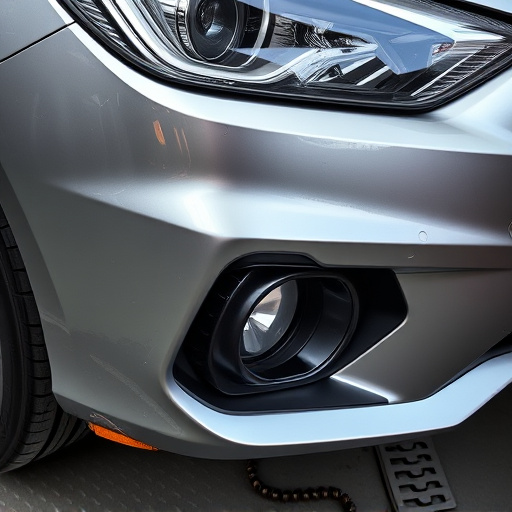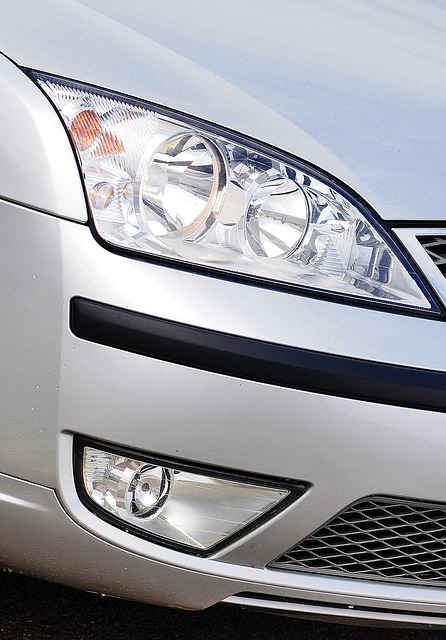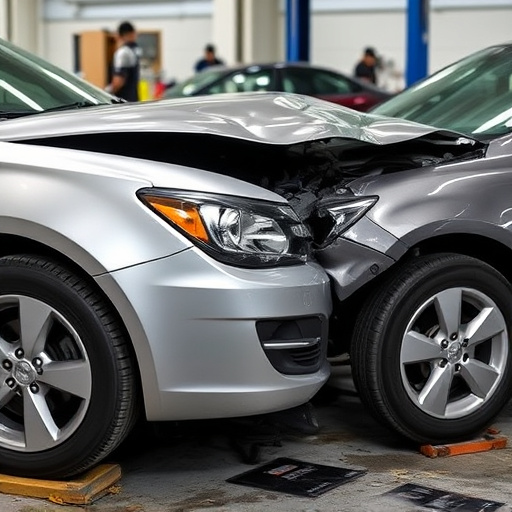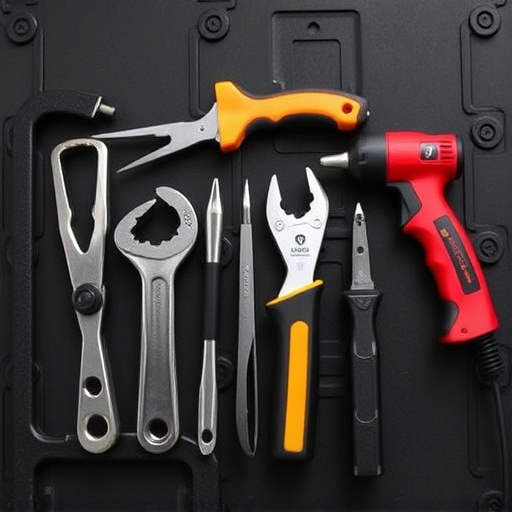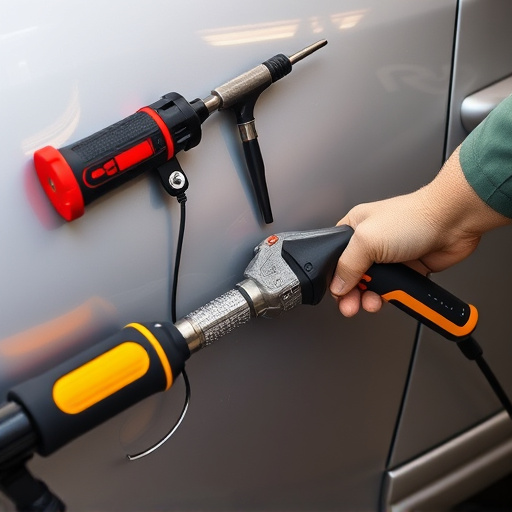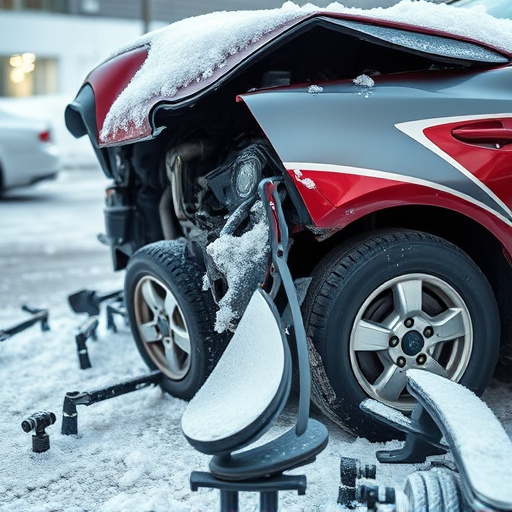Power steering collision repair involves crucial sensor assessment and functionality checks to ensure safety and accurate repairs. Modern sensors are vital for optimal vehicle performance, handling, and services like tire services and auto glass replacement. Advanced sensor technologies enable precise adjustments, smoother driving, improved fuel economy, and early issue diagnosis, ultimately enhancing both vehicle safety and repair efficiency.
In the realm of modern vehicle maintenance, sensors play a pivotal role, especially in power steering systems. This article delves into the intricate world of power steering sensors and their critical role in collision repair. We’ll explore the basics of these sensors, their functionality, and how malfunctions can impact repair processes. Furthermore, we’ll highlight advanced sensor technologies that enhance safety and efficiency in power steering collision repair, ensuring folks receive top-notch service.
- Understanding Power Steering Sensors: Basics and Functionality
- Impact of Sensor Malfunction on Collision Repair
- Advanced Sensor Technologies for Improved Safety and Efficiency
Understanding Power Steering Sensors: Basics and Functionality
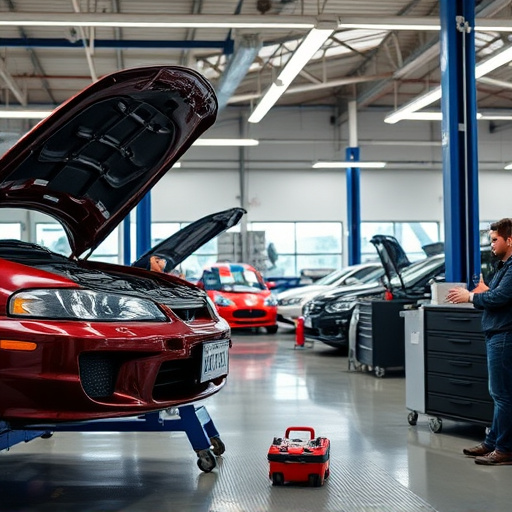
Power steering sensors are integral components in modern vehicles, playing a pivotal role in enhancing driving safety and comfort. These sensors monitor various parameters related to the power steering system, ensuring its optimal performance. The primary function is to detect and convey critical information about the vehicle’s steering mechanism, including steering angle, velocity, and force. This data is then processed by the vehicle’s computer to adjust the power steering assist accordingly, making driving easier and more responsive.
In the context of power steering collision repair, understanding these sensors becomes crucial. When a vehicle undergoes a collision, these sensors might be affected, leading to issues in power steering functionality. Therefore, a thorough assessment of sensor integrity is essential during the repair process, especially when addressing tire services or carrying out car restoration work. Ensuring their proper functioning guarantees not only the effectiveness of power steering but also contributes to a safer driving experience post-collision repair.
Impact of Sensor Malfunction on Collision Repair

In the realm of power steering collision repair, sensor malfunction can significantly impact the quality and efficiency of the repair process. Sensors play a pivotal role in modern vehicles by providing critical data to the vehicle’s systems, ensuring optimal performance and safety. When these sensors fail, it can lead to inaccurate readings, misdiagnosis, and even potential hazards. For instance, a faulty speed sensor might provide incorrect signals to the power steering system, resulting in improper steering assistance during collision repair, affecting both the accuracy of alignment and the overall handling characteristics of the vehicle post-repair.
The impact of sensor malfunction extends beyond mere technical difficulties. In cases involving hail damage repair or tire services, accurate sensor data is essential for determining the extent of the damage and planning appropriate repairs. Auto glass replacement, another critical aspect of collision repair, may also be compromised if sensors related to windshield wiper functionality or vehicle stability are malfunctioning. Thus, addressing sensor issues promptly during power steering collision repair is paramount to ensuring not only the safety and reliability of the repaired vehicle but also the accuracy and comprehensiveness of the overall repair services.
Advanced Sensor Technologies for Improved Safety and Efficiency
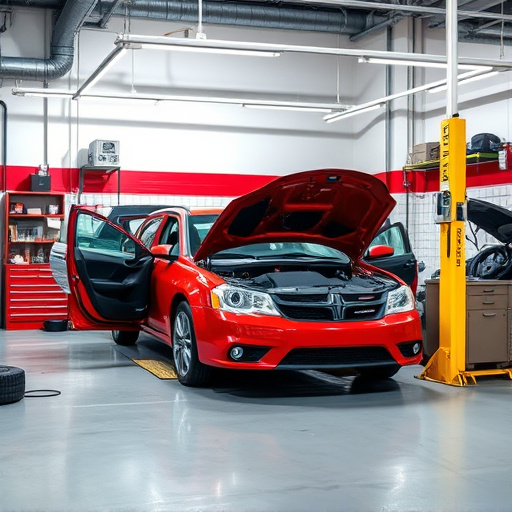
In the realm of power steering collision repair, advanced sensor technologies are transforming vehicle safety and efficiency. These sensors play a pivotal role in enhancing the overall performance and reliability of modern vehicles. By continuously monitoring various parameters such as fluid pressure, velocity, and temperature, sensors provide real-time data that allows for precise adjustments in power steering systems. This proactive approach not only ensures smoother driving but also contributes to improved fuel economy, making it an integral aspect of tire services and vehicle repair processes.
Moreover, the integration of sophisticated sensor technologies in collision repair shops enables mechanics to diagnose issues more effectively. Accurate readings from these sensors help in identifying potential problems before they escalate, thereby reducing the likelihood of catastrophic failures. This proactive maintenance approach not only enhances road safety but also streamlines the overall vehicle repair process, ensuring that clients receive high-quality services tailored to their needs, be it a simple tire service or complex collision repair.
Sensors play a pivotal role in modern power steering systems, influencing the efficiency and safety of collision repair. By understanding the basic functionality and advanced technologies behind these sensors, mechanics can effectively diagnose and address sensor malfunctions, ensuring safer and more streamlined repairs for power steering collision scenarios. This, in turn, enhances overall vehicle performance and passenger security.
